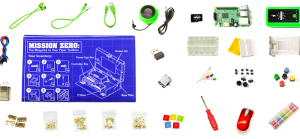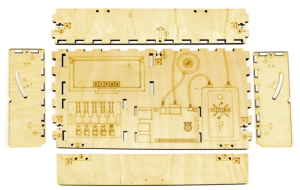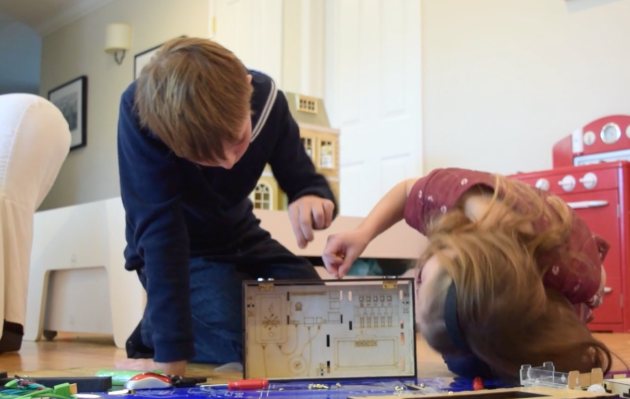What’s the best tool to help teach the next generation of K-12 students how to code? If you guessed ‘Minecraft’, you’re agreeing with a $2.1m bet made by Princeton University, 500 Startups and others into Piper.

Gamifying computer learning by leveraging… a computer game. Smart.
The company focuses on products powered by Raspberry Pi 3 to facilitate lessons in electronics, programming and engineering, teaching pupils to assemble their own computers and building gadgets to help them solve Minecraft challenges.
“The Piper computer kit is like a Trojan horse for learning,” Piper co-founder Joel Sadler laughs, “It combines a familiar video game with physical building. Ultimately we want to boost everyone’s creative confidence with technology, programming and engineering in a playful way.”

The casings snap together like a puzzle, and also include laser-cut help for what to do next.
The product is already in wide use and has seen broad celebrity endorsement, including from Steve Wozniak. The company also claims Elon Musk’s kids are in love with its products.
The Piper Computer Kit comes with everything a 7-12 year old needs to assemble his or her own computer, including a Raspberry Pi 3, a display, a power supply and a wooden case that snaps together like a three-dimensional puzzle to create a case for the computer.
The seed round was raised from — among others — Princeton’s Alumni Entrepreneurs Fund, Reach Capital, 500 Startups, FoundersXFund, co-founder of SkypeJaan Tallinn, and the founder of Makey Makey, Jay Silver.
